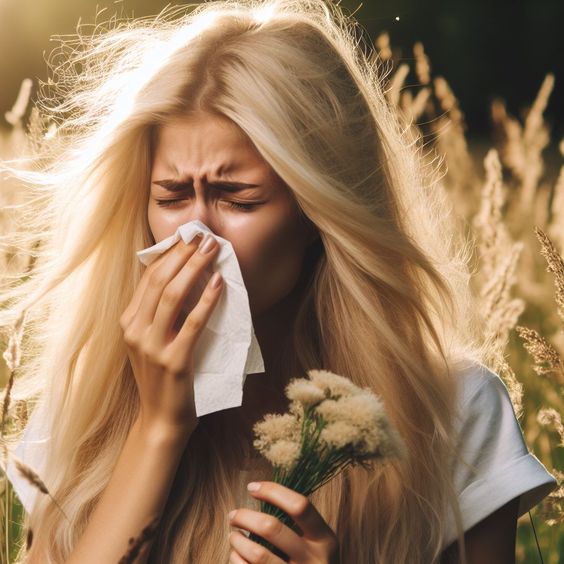Introduction
Allergies are an overreaction of the immune system to typically harmless substances in the environment. These substances, known as allergens, can range from pollen and pet dander to certain foods and medications. When someone with an allergy comes into contact with an allergen, their body releases histamine and other chemicals, leading to a cascade of symptoms.

Allergies are incredibly common, affecting millions of people worldwide. They can manifest at any age, and the severity can vary significantly from person to person. While some allergies may cause mild discomfort, others can trigger life-threatening reactions, like anaphylaxis. Understanding the triggers, symptoms, and available treatments for allergies is essential to effectively manage this condition and improve the quality of life for those affected.
Symptoms of Allergies
Allergic reactions can present a wide range of symptoms, often depending on the type of allergen and the individual's sensitivity. Common symptoms include:
- Respiratory: sneezing, runny nose, nasal congestion, coughing, wheezing, shortness of breath
- Skin: itching, hives, eczema, swelling
- Eyes: redness, itching, watering, swelling
- Digestive: nausea, vomiting, diarrhea, abdominal pain
- Other: fatigue, headache, dizziness
In severe cases, allergies can lead to anaphylaxis, a life-threatening allergic reaction. Symptoms of anaphylaxis include difficulty breathing, swelling of the throat, a drop in blood pressure, and loss of consciousness. Anaphylaxis requires immediate medical attention.
Allergic Reactions & The Immune System
The root of allergic reactions lies in the immune system. When an allergen enters the body of an allergic individual, their immune system mistakenly identifies it as a threat. This triggers a chain reaction, leading to the release of histamine and other inflammatory chemicals. These chemicals are responsible for the array of symptoms we associate with allergies.
Treatment & Management of Allergies
While there is no definitive cure for allergies, various treatments and management strategies can help alleviate symptoms and improve quality of life:
- Avoidance: Identifying and avoiding allergens is the most effective way to prevent allergic reactions.
- Medications: Antihistamines, decongestants, nasal corticosteroids, and other medications can help control allergy symptoms.
- Immunotherapy: Allergy shots, also known as immunotherapy, involve gradually exposing the body to increasing amounts of an allergen to build tolerance over time.
- Emergency preparedness: Individuals with severe allergies should carry an epinephrine auto-injector (like an EpiPen) for emergency treatment of anaphylaxis.
Living with allergies can be challenging, but with proper management and medical guidance, individuals can minimize their impact and lead fulfilling lives.





